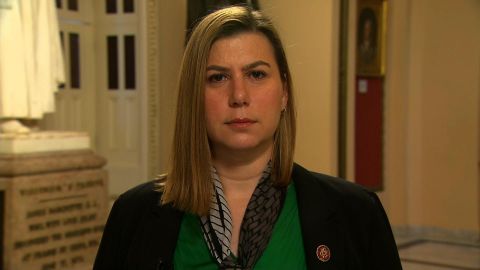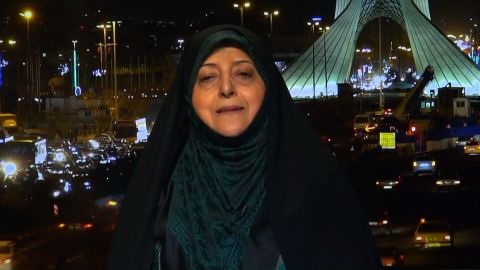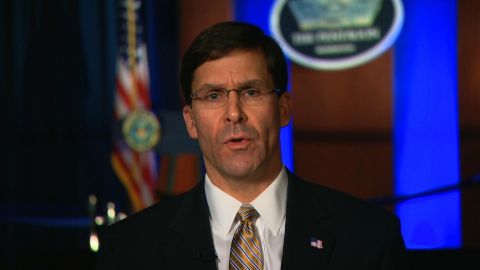Read Transcript EXPAND
CHRISTIANE AMANPOUR: But what we have right now is calls for de-escalation, and people don’t want war, and yet both sides calling each other terrorists, blaming each other for this action that finally took place, the targeted killing of Qasem Soleimani. Just respond to what you’re hearing right now.
REP. ELISSA SLOTKIN (D-MI): Yes. For me, it, unfortunately, feels like a classic case of a cycle of escalation. Right? We have had this tit-for-tat going on for about a year. We certainly escalated with the killing of Qasem Soleimani. And this idea that, somehow, this cycle of escalation is now going to lead to cooler heads prevailing just doesn’t track with sort of normal kind of conflict and how it starts. And I don’t actually question the secretary of defense or even the president’s intent that they don’t want to get into a war. But most wars are not intended. Most wars, you get this tit-for-tat that goes in this spiral, and then suddenly each side has its back up and you can’t back down, and you inadvertently fall into war. And that, to me, I think we are at very high risk of doing right now. So, it’s not just about intent. It’s our actions mean something beyond our control.
AMANPOUR: So, you served two tours of duty in Iraq. You’re a former CIA analyst. Secretary Esper commanded troops, infantry troops, in the first Gulf War in Iraq. I tried to ask him, how are you reading your enemy? Everybody has to read and know their enemy in order to respond. And you just heard Vice President Ebtekar say, the streets of Iran have already responded, and they are demanding more than just these outpourings on the streets, but action. How do you read, with all your knowledge and experience in intelligence- gathering, what the message from Iran is?
SLOTKIN: Well, listen, I mean, I just — the first thing you need to think about is, what if something like this happened to us, right? And I’m not saying that Qasem Soleimani is a good guy. That guy is not a good guy. And the idea that the vice president was putting forth that Iran only wants peace and safety in the region, I’m sorry, that is just not factually correct. That said, imagine if any country had the equivalent of a CIA — head of CIA or four-star general killed. There would certainly be pressure to respond. And, obviously, the pictures in Iran are striking. The Iranian political leaders are going to be under tremendous pressure to do something. And what we know from Iranians’ behavior is that they don’t always respond in a symmetric, sort of predictable way. They’re going to take their time. They’re going to think about how to get back at us, and that, to me, is extremely dangerous. So, even if there are cooler heads in Tehran right now, just watching what’s going on, on their own streets, they’re going to feel pressure to respond. And that is dangerous.
About This Episode EXPAND
As allies of the U.S. call for both America and Iran to de-escalate the crisis over the killing of Qasem Soleimani, Christiane Amanpour discusses this highly fraught geopolitical moment with Mark Esper, Massoumeh Ebtekar, Elissa Slotkin and Turki Al-Faisal.
LEARN MORE



